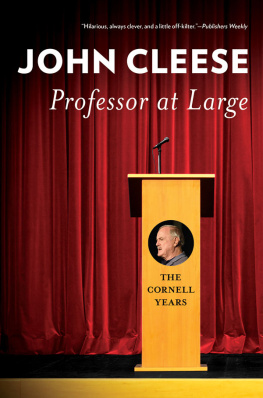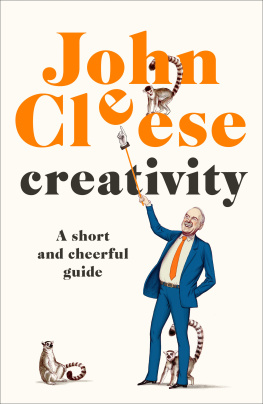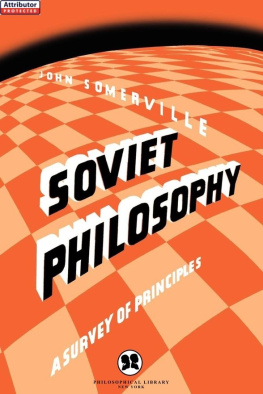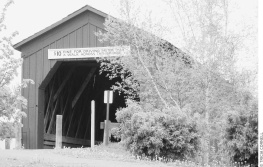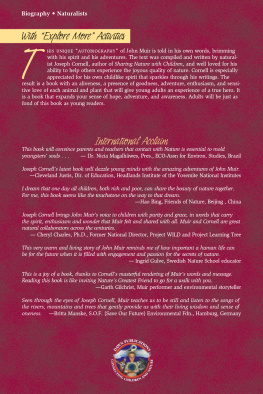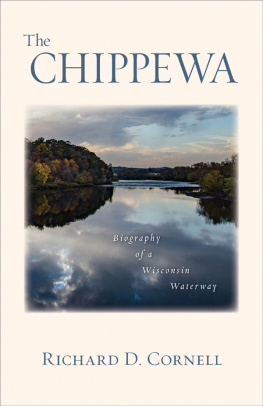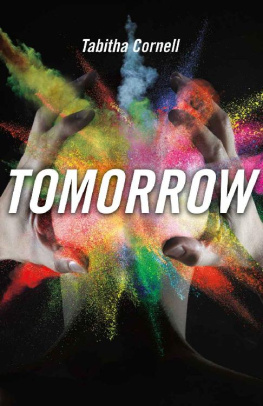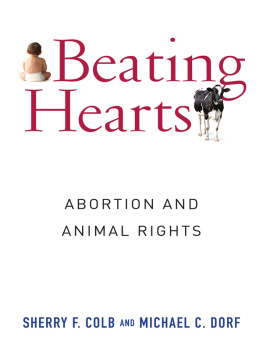John Cleese - Professor at Large: The Cornell Years
Here you can read online John Cleese - Professor at Large: The Cornell Years full text of the book (entire story) in english for free. Download pdf and epub, get meaning, cover and reviews about this ebook. year: 2018, publisher: Cornell University Press, genre: Religion. Description of the work, (preface) as well as reviews are available. Best literature library LitArk.com created for fans of good reading and offers a wide selection of genres:
Romance novel
Science fiction
Adventure
Detective
Science
History
Home and family
Prose
Art
Politics
Computer
Non-fiction
Religion
Business
Children
Humor
Choose a favorite category and find really read worthwhile books. Enjoy immersion in the world of imagination, feel the emotions of the characters or learn something new for yourself, make an fascinating discovery.
- Book:Professor at Large: The Cornell Years
- Author:
- Publisher:Cornell University Press
- Genre:
- Year:2018
- Rating:4 / 5
- Favourites:Add to favourites
- Your mark:
- 80
- 1
- 2
- 3
- 4
- 5
Professor at Large: The Cornell Years: summary, description and annotation
We offer to read an annotation, description, summary or preface (depends on what the author of the book "Professor at Large: The Cornell Years" wrote himself). If you haven't found the necessary information about the book — write in the comments, we will try to find it.
Professor at Large: The Cornell Years — read online for free the complete book (whole text) full work
Below is the text of the book, divided by pages. System saving the place of the last page read, allows you to conveniently read the book "Professor at Large: The Cornell Years" online for free, without having to search again every time where you left off. Put a bookmark, and you can go to the page where you finished reading at any time.
Font size:
Interval:
Bookmark:


In loving memory of Gerri Jones
The Cornell Years
JOHN CLEESE
CORNELL UNIVERSITY PRESS
Ithaca and London
IT HAS BEEN ALMOST TWENTY YEARS since I received a call from an old friend, Gerri Jones. She had worked as the administrator of the Andrew D. White Professor-at-Large (PAL) Program at Cornell University for many years. Gerri shared with me Professor Porus Olpadwalas dream to have John Cleese be nominated as a PAL. They are appointed for six-year terms and asked to visit campus at least twice for two weeks at a time during their appointments. However, because Porus was chair of the Professors-at-Large program, he was unable to nominate Cleese himself. Learning of this, Gerri asked me if I would be willing to spearhead the nomination. Faculty are asked annually to nominate eminent individuals to be PALs. The typical nominees for these prestigious invitations are scholars, including Nobelists and recipients of other esteemed awards such as Pulitzer Prizes and Tony Awards. And this is how I came to nominate John Cleese (or JC, as we now affectionately call him) to be an Andrew D. White Professor-at-Large.
To say that I immediately resonated with Gerris request is an understatement. I had never met JC, but like many of my colleagues, I was familiar with his oeuvre. Some of my familiarity resulted from having lived and studied in England for three years during the mid-1970s. During my time there, Monty Pythons Flying Circus was erupting throughout the UK, shortly followed by Monty Python and the Holy Grail and Life of Brian. (It would be a couple of years before the show reached a comparable fever pitch in the U.S. and Canada.) So when Gerri called, I was both cognitively and emotionally prepared to be the faculty nominator of John Cleese.
The rules for nominating PALs call for broad endorsement across the Cornell campus. So I began making calls to colleagues in various disciplines, from mathematics to the social sciences and humanities. I asked them to write supporting letters to accompany my nomination of JC. No one declined and, in fact, everyone was thrilled to be part of the plan. Once I drafted the nomination, it was cosigned by a diverse group of scholars. I submitted it to the committee and the rest is history!
A month later the committee notified me that the nomination was successful, and I was asked to call JC to find out if he would accept the invitation. This was exciting, but also intimidating. I did not know him personally, and I feared he might regard a cold-call invitation, at best, as an imposition on his time. I remember thinking the chance that I would actually reach him by phone was low. Gerri gave me a London telephone number that she said was affiliated with Cleese. I assumed it was an office that he seldom frequented, so I planned to leave a message that might get relayed to him. The person who answered turned out to be JCs personal assistant. I explained to him the details of the invitation, how Cornell would pay for all costs associated with each visit, our expectations for the kind of events he might do, and more. The assistant took notes and said he would make sure Cleese got my message. He wasnt kidding. Within a half hour my office phone rang and it was none other than John Cleese, complete with his famously hilarious voice. We talked for fifteen to twenty minutes and I remember being struck by how absolutely down-to-earth and humble he was. There was nothing pretentious or haughty about him. He told me how honored he was to be nominated and how much it meant to him to be recognized by faculty members of an Ivy League university as a visiting professor. I was bowled over because I had assumed I would have to sell him on the idea. After all, it carried no remuneration aside from his travel costs and, in fact, would mean that he had to forgo work on lucrative films and one-man shows while he was visiting each year. Yet he seemed genuinely thrilled and wanted to know when he could start. He was so keen that he actually started coming to Cornell before his appointment began so he could discuss with us our expectations.
Perhaps I can be forgiven for my low hopes of getting JC to accept the PAL appointment. Cleese was, and remains, a huge talent. Within a few years of our phone conversation, he would go on to be voted by two hundred professional comedians as the second-best comedian of all time, besting Groucho Marx, Laurel and Hardy, Peter Sellers, Steve Martin, and Woody Allen. So this man did not need Cornell to seal his fame. Yet he came to Cornell and put on incredible events, including talks, workshops, and an analysis of A Fish Called Wanda. And JC also did something that I had not foreseen: he asked not only to visit classes but to teach them, from script writing to psychology, religion, hotel management, and even medicine. Cleese was also fascinated by much of the research my colleagues were doing, and he often requested to sit in on their classes. They, of course, welcomed him with open arms. Thus, each visit was one in which JC delivered a public presentation, attended and lectured in classes, and met privately with researchers. On one occasion, he dropped in on my lab, which had around fifteen students, mostly doctoral candidates. One of them was British. JC entered the seminar room a few minutes after we began and sat alone. I never introduced him, but my British graduate student recognized him, and the whispering spread like a contagion. When I asked her to describe to JC her research, this extremely articulate person became tongue-tied. It was very amusing to see the reaction that JC had on most students (and not a few faculty members).
After a few years, we added a new feature to his visits, assembling small groups of scholars for informal chat sessions. These proved popular, not only with JC but with the rest of us too. Speaking for myself and Gerri, we attended every one of these sessions and they quickly became our favorite events. JC easily held his own among the scholars, asking penetrating questions on every topic. He has a true scholars intellect, which perhaps should not have surprised me given his law training at Cambridge University. But even among scholars, it is rare to find individuals with his catholic taste and ease interacting with other academics outside their areas of specialty. JC delighted in these chat sessions. On occasion he would jot down a comment someone made and announce he was going to use it in his one-man show. And he did. Once or twice an idea came out of these chat sessions that we talked about testing. One such idea was JCs own. The faculty group had been discussing synchronization as a biological concept, and Steven Strogatz, the eminent mathematician, was among them. Steve had recently written his book Sync, in which he revealed the math behind synchronies in nature. Cleese was triggered by something Steve said and connected it with an observation hed made long ago in the comedy business. He said that he felt there was a tipping point as far as audiences are concerned: with groups below forty or fifty people, it was more difficult to engender the sort of viral laughter he could evoke in larger audiences. One thought led to another, and before long we had designed an experiment to test JCs hunch. Maybe someday we will get the opportunity to test it.
The term of an A. D. White Professor-at-Large is six years. It is possible to renew the appointment for up to two additional years and we requested this to be done. The A. D. White committee was in full agreement even though it is unusual to reappoint someone, so JC served for two more years, which took him to 2007. During this time, he continued to mesmerize new generations of students, staff, and faculty, filling venues to the point of standing room only. He also occasionally mentioned Cornell during appearances on national television programs, such as Good Morning America. As the campus became increasingly aware of how important his relationship to Cornell was, they asked more of him than we had ever asked of other visiting professors. To name a few examples, he made a surprise appearance at the roast of outgoing president Hunter Rawlings, delivered a sermon for a Sunday service in Sage Chapel, and made a presentation to the parents of entering freshmen. It was no surprise that he filled Barton Hall.
Font size:
Interval:
Bookmark:
Similar books «Professor at Large: The Cornell Years»
Look at similar books to Professor at Large: The Cornell Years. We have selected literature similar in name and meaning in the hope of providing readers with more options to find new, interesting, not yet read works.
Discussion, reviews of the book Professor at Large: The Cornell Years and just readers' own opinions. Leave your comments, write what you think about the work, its meaning or the main characters. Specify what exactly you liked and what you didn't like, and why you think so.

